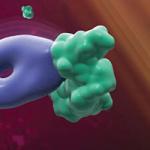
Andrew Lutas, Ph.D.
Stadtman Investigator
Neuromodulation and Motivation Section, Diabetes, Endocrinology, & Obesity Branch
NIDDK
Research Topics
The purpose of our research is to understand principles of neuromodulation of brain circuits that control motivation and uncover treatment strategies for obesity and comorbid diseases.
Current Research
Environmental, stressful, and emotional triggers can powerfully impact our food consumption making it difficult to prevent overeating. We study how neural circuits integrate hormonal, neuropeptide, and monoamine neurotransmitter signaling to control the salience of these triggers and influence related processes in energy homeostasis. Our current research is focused on how multiple neuromodulator signals like dopamine and neuropeptides converge on a common intracellular molecular signal, cyclic AMP (cAMP), to adjust neural circuit activity. Studying intracellular signals has been challenging as these signals are difficult to continuously monitor in behaving animals. We overcome these challenges by using optical approaches like two-photon microscopy, novel fluorescent biosensors, and optogenetics to longitudinally track and manipulate molecular signals inside neurons in the intact brain. By combining these optical approaches with behavior tasks and genetic manipulations in rodents, we probe how molecular signals influence the activity of neural circuits involved in the overconsumption of food. We track these intracellular signals with subcellular resolution as they change over the course of daily food consumption and over many weeks of overconsumption leading to obesity.
Biography
- Instructor of Medicine, Harvard Medical School, 2020-2022
- Staff Scientist, Beth Israel Deaconess Medical Center, 2020-2022
-
Postdoctoral Fellow, Beth Israel Deaconess Medical Center, 2015-2020
-
Ph.D., Harvard University, 2015
-
B.S., The Pennsylvania State University, 2008
Selected Publications
- Singh Alvarado J, Lutas A, Madara JC, Isaac J, Lommer C, Massengill C, Andermann ML. Transient cAMP production drives rapid and sustained spiking in brainstem parabrachial neurons to suppress feeding. Neuron. 2024;112(9):1416-1425.e5.
- Lutas A, Fernando K, Zhang SX, Sambangi A, Andermann ML. History-dependent dopamine release increases cAMP levels in most basal amygdala glutamatergic neurons to control learning. Cell Rep. 2022;38(4):110297.
- Kucukdereli H, Amsalem O, Pottala T, Lim M, Potgieter L, Hasbrouck A, Lutas A, Andermann ML. Repeated stress triggers seeking of a starvation-like state in anxiety-prone female mice. Neuron. 2024;112(13):2130-2141.e7.
- Zhang SX, Lutas A, Yang S, Diaz A, Fluhr H, Nagel G, Gao S, Andermann ML. Hypothalamic dopamine neurons motivate mating through persistent cAMP signalling. Nature. 2021;597(7875):245-249.
- Reggiani JDS, Jiang Q, Barbini M, Lutas A, Liang L, Fernando J, Deng F, Wan J, Li Y, Chen C, Andermann ML. Brainstem serotonin neurons selectively gate retinal information flow to thalamus. Neuron. 2023;111(5):711-726.e11.
Related Scientific Focus Areas


Social and Behavioral Sciences
View additional Principal Investigators in Social and Behavioral Sciences

Molecular Biology and Biochemistry
View additional Principal Investigators in Molecular Biology and Biochemistry


This page was last updated on Thursday, August 7, 2025